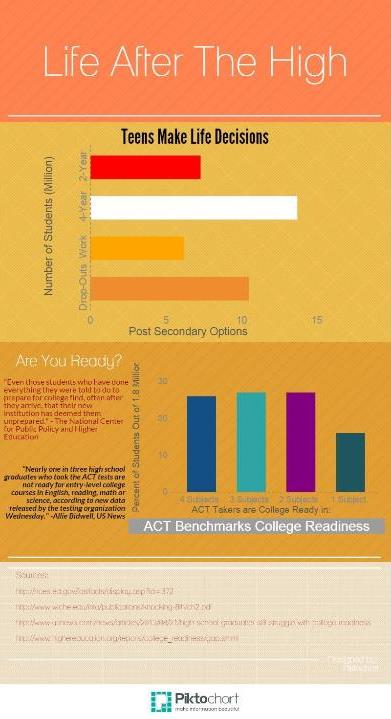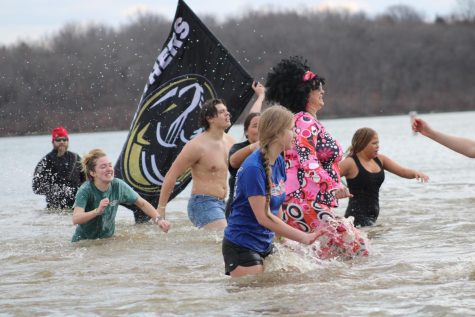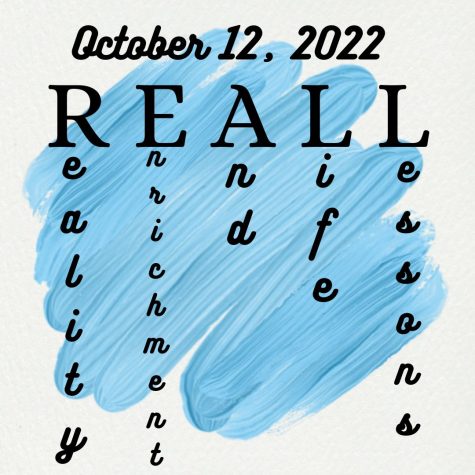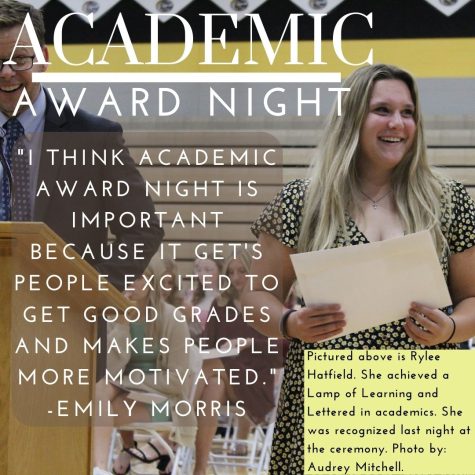Dania Gastelum: Inadequacy of Education
One reporter’s view on how high school is not preparing students for the college experience
High school is a place full of massive diversification, however, whether or not students leave high school with a clear idea of what to do in order to prepare for their post-secondary education, solely depends on the interest of the student. High school itself does not fully prepare students for what is soon to come. Students are required to focus on classes they must take in order to graduate, which typically split students up into the advanced and the average. Academically, there is not the same expectation held for all students, which may be the cause to why college readiness is not fully taught in high school. A high school system is nothing like college, though school is supposed to teach pupils to learn for the next step they will take in their education. However, it is not a facilities job to make sure that their students attend post-secondary education because ultimately it is a student’s decision.
High school could definitely better prepare the students interested in going to college in a better way. However, the idea of college should be suggested more by the school to all students. Instead, the education system pushes the student body into learning different subjects that may not fully interest an average student, the student body is not held accountable to meet the same expectations for certain subjects. Of course this does not apply to all subjects; a student may be good at algebra but not at calculus, or has no interest in going into a field of study which requires a broad knowledge of advanced math. But when it comes to classes like government and politics, English, or even biology, if a school believes that their students are capable of being successful above and beyond their classrooms, then an educational facility should not be expecting so little from certain students. A student in a basic English class who passes with a C, earns the same high school credit a different student may earn in an AP class who passes with an A. Granted, the GPA’s of these two students will be different, as will their class ranking, but they both earned an English credit: one just happened to work a lot harder for it. Secondary school makes students focus on basic core education, but hardly anything outside of its bubble. Different students learn at different paces, sure, however a C should not be as good as an A.
That being said, both types of students are so focused with what is being demanded from them during their time in high school, they have little time for anything else. Students can go out of their way and take classes that will give them a broader knowledge of what the world outside of just high school looks like. Classes such as Dual Credit Personal Finance teaches students how to be fiscally responsible, how to prepare for college, how to prepare for the future financially, and helps students build skills they will use for the rest of their lives. A finance class is required by law to be taken by every high school student in the state of Missouri, however they do not all teach the same criteria. Personal Finance is definitely not the same class as the Dual Credit class. A college readiness class would definitely help those who seek college after high school, in order to ease the transition for students academically, socially, financially, maybe even give students a better idea of what they would like to study once in college. A student enrolled in high school is more likely to attend college than a student who is not, but high school itself does not fully prepare students for the next chapter in their lives.







